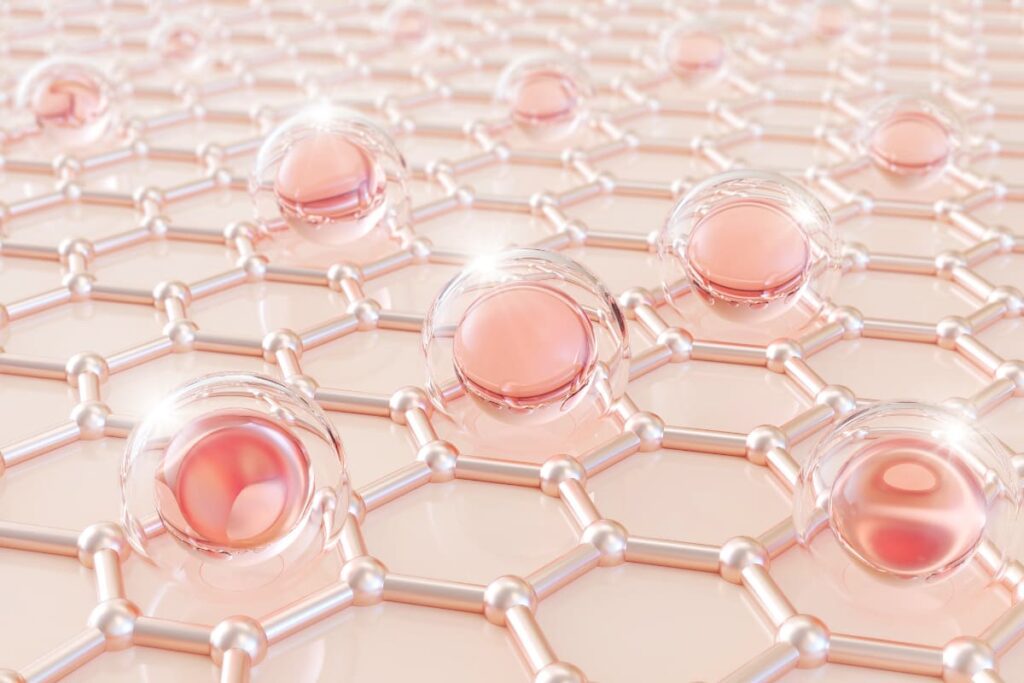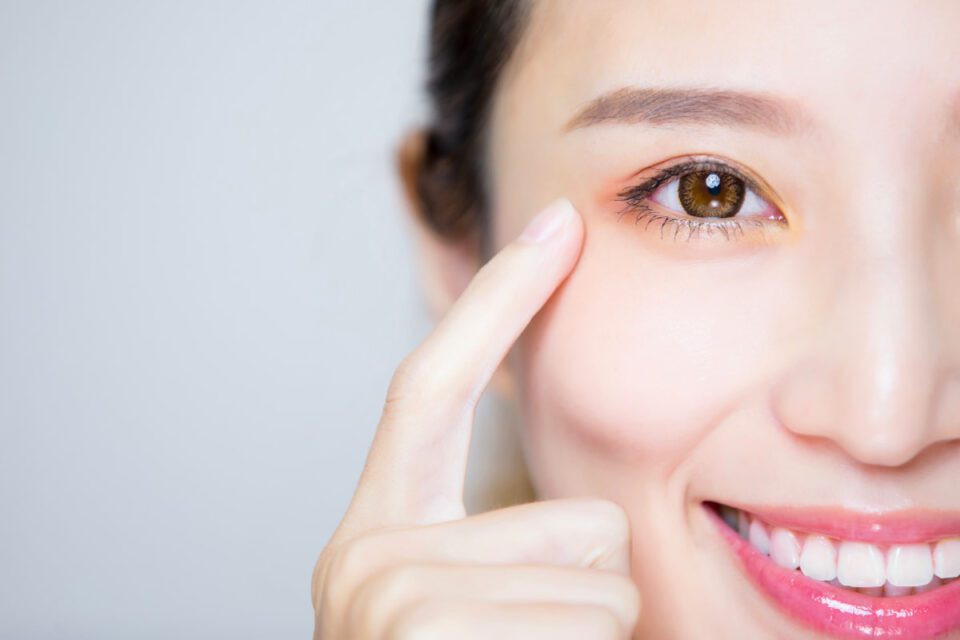Do you find yourself wrestling with the frustration of persistent dark circles under your eyes, coupled with the ongoing battle for a good night’s sleep? You’re not alone in wondering how to get rid of dark circles. The correlation between sleep and dark circles is more significant than you might think.
Lack of sleep affects one’s appearance and it may cause people feel less attractive because of visible signs of fatigue as dark circles. Recognizing the impact of sleep on your appearance is a crucial step towards reclaiming your confidence. The visible signs of fatigue, like dark circles, are not a reflection of your intrinsic attractiveness but a call to prioritize self-care and better sleep habits, empowering you to present your best and vibrant self to the world.
In this article, we’ll delve into the scientific intricacies of this connection and provide you with actionable tips to reclaim those bright, sparkling eyes.
Table of Contents
Understanding the Reasons of Dark Circles
Dark circles under the eyes can be caused by a variety of factors, and it’s essential to explore these elements to understand the complex nature of their formation. Here are some of the key factors contributing to dark circles:
The beauty of your eyes Is a reflectIon of the care they receIve. A well-rested nIght Isn’t just a gIft to your soul; It’s a precIous Investment In the lumInosIty and allure that graces your gaze
Key Factors of Dark Circles
- Genetics: Those with genetically thinner skin around the eyes may be more prone to the visibility of blood vessels, contributing to the development of dark circles.
- Age: The skin naturally loses collagen and becomes thinner as we age, allowing blood vessels to become more apparent.
- Dehydration: Inadequate hydration can make the skin appear dull and more transparent, intensifying the effect of dark circles.
- Sun Exposure: Prolonged exposure to the sun accelerates the aging process, breaking down collagen and elastin in the skin, making blood vessels more visible and contributing to the formation of dark circles.
- Iron Deficiency: Anemia or iron deficiency can result in a reduced oxygen supply to tissues, causing blood vessels to dilate and leading to the darkened appearance under the eyes.
- Poor Lifestyle Habits: Smoking, excessive alcohol consumption, and a lack of proper nutrition can contribute to premature aging, skin damage, and an increased susceptibility to dark circles.

The Connection Between Sleep and Dark Circles
Besides of these factors, lack of quality sleep is another significant contributor for dark circles. When we don’t get enough rest, blood vessels under the thin skin around the eyes can dilate, causing a darkened appearance.
- Sleep and Blood Circulation: During quality sleep, blood flow to the skin increases, facilitating the delivery of oxygen and nutrients. Inadequate sleep disrupts this process, potentially leading to stagnant blood flow and dilation of blood vessels under the eyes.
- Thin Skin and Visibility of Blood Vessels: The skin around the eyes is notably thin and delicate. When blood vessels dilate due to factors like lack of sleep, they become more visible through the thin skin, creating the darkened appearance associated with dark circles.
Understanding these factors provides a comprehensive view of why dark circles occur, enabling individuals to address both the underlying causes and visible symptoms.
Sleep Is the nIghtly rItual that unveIls the true beauty of your eyes. It’s not just about closIng your eyes; It’s about openIng the door to a world of rejuvenatIon and lumInosIty
How Sleep Influences Skin Health
Quality sleep is essential for overall skin health, and the delicate skin around the eyes is no exception. During deep sleep, the body undergoes crucial repair and regeneration processes, contributing to a radiant complexion. Poor sleep disrupts this renewal, leading to dull, tired-looking skin and exacerbating the appearance of dark circles.
- Cellular Repair and Regeneration: Deep sleep, also known as slow-wave sleep, is a phase in the sleep cycle where the body focuses on cellular repair and regeneration. This process is essential for maintaining skin elasticity and a youthful appearance.
- Collagen Production: Collagen, a crucial protein for skin structure, is primarily synthesized during deep sleep. Insufficient sleep disrupts this process, potentially leading to a reduction in collagen production, which can result in dull and tired-looking skin.
- Blood Circulation and Oxygenation: During quality sleep, blood circulation to the skin increases, ensuring optimal oxygen and nutrient delivery. Improved blood flow contributes to a natural glow, promoting a healthier and more vibrant skin tone.

- Release of Growth Hormones: Deep sleep triggers the release of growth hormones, including human growth hormone (HGH), which plays a role in cell regeneration and tissue repair. Disrupted sleep patterns may interfere with hormonal balance, negatively affecting skin appearance.
- Stress Hormone Regulation: Sleep is crucial for regulating cortisol, a stress hormone. Chronic sleep deprivation can lead to elevated cortisol levels.High cortisol levels may contribute to inflammation and oxidative stress, accelerating the aging process and potentially worsening the appearance of dark circles.
- Fluid Balance: During sleep, the body regulates fluid balance, preventing the accumulation of excess fluid in certain areas, including the under-eye area. Quality sleep helps minimize morning puffiness and prevents the exacerbation of dark circles caused by fluid retention.
Understanding these complex processes underscores the importance of prioritizing quality sleep for maintaining not only overall health but also the vitality and radiance of the skin, particularly in areas prone to dark circles. It emphasizes how a good night’s sleep is a natural and effective way to enhance the skin’s appearance and combat signs of fatigue.
How to Get Rid of Dark Circles: Tips for Brighter Eyes
Scientific studies, such as those published in reputable journals like the Journal of Clinical Sleep Medicine, consistently emphasize the link between inadequate sleep and the manifestation of dark circles. Sleep deprivation not only affects skin appearance but also impacts the body’s ability to regulate stress hormones, exacerbating the issue. As a result, the sensitive relationship between sleep and dark circles is multifaceted and complex, but there are science-backed tips that can help you understand and improve it:
Establishing Healthy Sleep Patterns
- Consistent Sleep Schedule: Align your sleep-wake cycle by going to bed and waking up at the same time every day. This helps regulate your body’s internal clock.
- Create a Relaxing Bedtime Routine: Wind down before bedtime with calming activities like reading, gentle stretching, or listening to soothing music.
- Optimize Your Sleep Environment: Ensure your bedroom is conducive to sleep by keeping it cool, dark, and quiet. Invest in a comfortable mattress and pillows to enhance your overall sleep quality.
For further insights and a deeper exploration of this topic, check out our related article at [How To Sleep Better: A Guide to a Better Version of You].
Lifestyle Adjustments for Eye Health
- Hydration Matters: Dehydration can make dark circles more pronounced. Stay adequately hydrated to support overall skin health.
- Balanced Diet: Consume a diet rich in antioxidants, vitamins, and minerals to promote skin elasticity. Include foods like fruits, vegetables, and omega-3 fatty acids. Reduce your intake of alcohol and caffeine, which can disrupt sleep.
- Protect Your Eyes: Shield your eyes from harsh sunlight by wearing sunglasses. UV rays can accelerate the aging process and contribute to the appearance of dark circles.
When to Consult a Specialist: Persistent dark circles may sometimes require professional intervention. Consult a dermatologist or a sleep specialist if your efforts at improving sleep and lifestyle habits don’t yield the desired results.
The beauty of eyes transcends makeup; It’s nurtured In the arms of a good nIght’s sleep. Embrace the nIghttIme symphony of renewal, and wake up to eyes that tell a story of well-beIng and tImeless allure
Conclusion
Achieving brighter, more youthful-looking eyes is a common goal for many people seeking to enhance their appearance. However, few realize the crucial role that sleep plays in achieving this goal. The quality of your sleep directly impacts the skin’s ability to repair, regenerate, and maintain a vibrant complexion, making it a fundamental factor in the pursuit of radiant eyes.
By following these science-backed tips and adopting healthier sleep and lifestyle habits, you can begin your journey towards rejuvenated, radiant eyes. Remember, a good night’s sleep is not just a luxury; it’s a powerful tool for enhancing your overall well-being and beauty. Prioritizing sleep is an investment in the health and vitality of your skin, bringing you closer to the youthful and refreshed look you desire.

